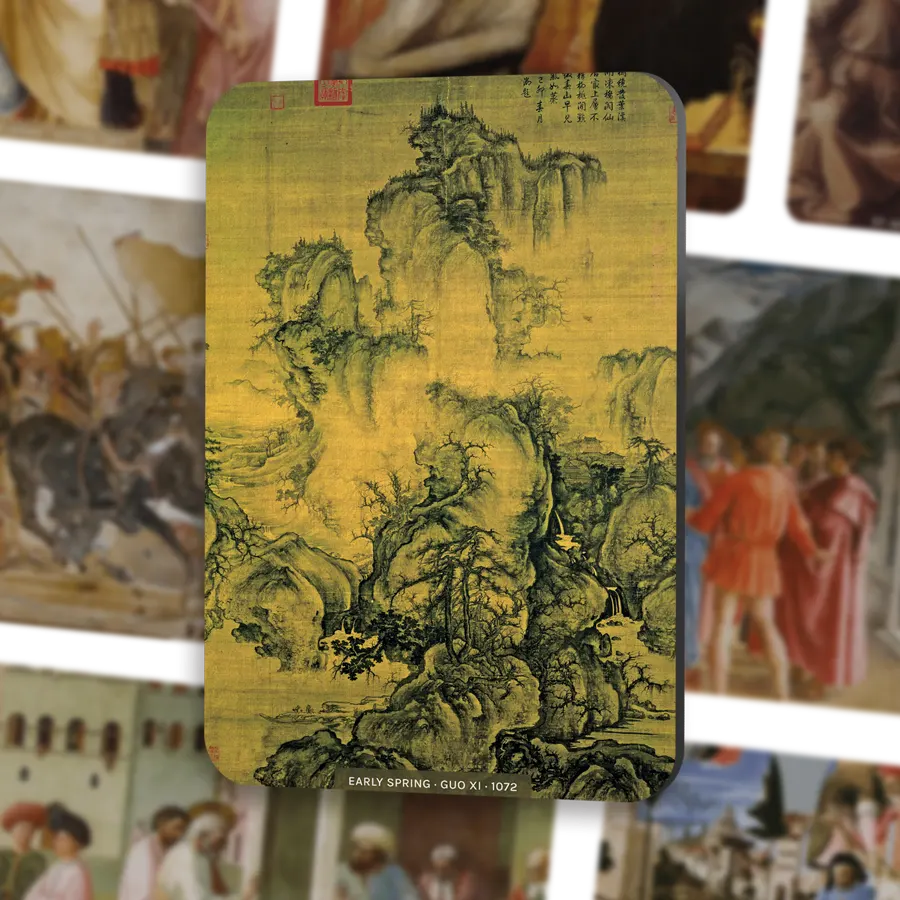Throughout world history, there have been numerous events that changed the world and had a lasting impact on the course of history. From revolutions that reshaped governments to the invention of the printing press that transformed the spread of knowledge, these events have left their mark across the world.
What are some of the most important events in history?
Among the most important events in history, revolutions have played a significant role in shaping nations. For example, the French Revolution in the late 18th century transformed France's political and social landscape, inspiring other nations to pursue similar changes. Similarly, the Russian Revolution in October 1917 led to the establishment of the Soviet Union and had far-reaching effects on global politics.
The invention of the printing press by Johannes Gutenberg in the 15th century is also a pivotal event. It revolutionized the way information was disseminated, making knowledge accessible to a wider audience and sparking the Renaissance period.
Another important event was the birth of a new nation - the United States of America. The American Revolution challenged British colonial rule and led to the formation of a new nation founded on the principles of liberty and democracy. This event served as an inspiration for other countries seeking independence.
Which events changed the world?
The Treaty of Versailles, signed in 1919, marked the end of World War I and reshaped the world map. It imposed heavy reparations on Germany, redrew borders, and led to the creation of new countries. The treaty, while aimed at preventing future conflicts, laid the groundwork for future tensions that eventually led to World War II.
In October 1929, the world experienced the Wall Street Crash, which triggered the Great Depression. This event had a profound impact on global economies and precipitated an era of widespread unemployment, poverty, and economic hardship.
Who were some prominent figures in historical events?
Mao Tse Tung, often referred to as Chairman Mao, played a central role in China's communist revolution. He led the Communist Party of China and established the People's Republic of China, making it the most populous nation in the world.
American presidents such as Abraham Lincoln, Franklin D. Roosevelt, and John F. Kennedy have also had significant impacts on world history. Lincoln's leadership during the American Civil War, Roosevelt's handling of the Great Depression and World War II, and Kennedy's stance during the Cuban Missile Crisis all shaped the course of history.
In addition, Chiang Kai-shek, the leader of the Chinese Nationalist Party, played a key role in the Chinese Civil War and the establishment of the Republic of China on Taiwan.
How did historical events impact the world?
The involvement of American troops in both World Wars had a profound impact on the outcomes of these conflicts. Their intervention in the First World War helped tip the scales in favor of the Allies, while their entry into the Second World War turned the tide of the war into the Pacific arena, leading to the defeat of Japan and Germany.
Economic growth has also been influenced by historical events. The Great Depression following the Wall Street Crash of 1929 led to a reevaluation of economic policies worldwide and the creation of new systems, such as the New Deal in the United States.
In conclusion, historical events have shaped the world in significant ways. From revolutions and the invention of the printing press to the formation of new nations and global conflicts, these events have altered the course of history and left a lasting impact on economies, politics, and societies across the globe. Understanding these events and their consequences is crucial to comprehend the complexities of the world we live in today.
Learn more about history with MUSÉEWALL collections - educational magnetic cards.
Q: What are some famous historical events that changed the world?
A: Some famous historical events that shaped the world include World War II, the discovery of America, the French Revolution, the Industrial Revolution, and the moon landing.
Q: How did the League of Nations contribute to world history?
A: The League of Nations, created after World War I, was an international organization aimed at maintaining peace and resolving conflicts. While it failed to prevent the outbreak of World War II, it laid the groundwork for the establishment of the United Nations, which has played a crucial role in international relations.
Q: What impact did the Great Depression have on the world?
A: The Great Depression, which was precipitated by the Wall Street Crash of 1929, had a profound impact on the world. It led to widespread unemployment, poverty, and economic hardships in many parts of the world. It also contributed to the rise of extremist ideologies and set the stage for World War II.
Q: How did the discovery of America change the world?
A: The discovery of America by Christopher Columbus in 1492 had a transformative impact on the world. It paved the way for European colonization of the Americas, expanded trade routes, and brought about the integration of the eastern and western hemispheres.
Q: What was the significance of the French Revolution?
A: The French Revolution, which began in 1789, was a major turning point in world history. It challenged the monarchy and feudal system, promoted the ideals of liberty, equality, and fraternity, and set the stage for the spread of revolutionary ideas across the world.
Q: How did the Industrial Revolution shape the world?
A: The Industrial Revolution, which started in the 18th century, had a transformative impact on society, economy, and technology. It marked the shift from agrarian economies to industrialized societies, led to urbanization and brought about significant advancements in transportation, communication, and manufacturing.
Q: What was the impact of the moon landing on the world?
A: The moon landing, which occurred on July 20, 1969, was a landmark event in human history. It symbolized the scientific and technological achievements of humanity and demonstrated our ability to explore and conquer new frontiers. It also enhanced global cooperation and sparked advancements in various fields of science and technology.
Q: How did the Cold War shape the world?
A: The Cold War, which spanned from the late 1940s to the early 1990s, was a period of intense tension and military rivalry between the United States and the Soviet Union. It shaped the world through proxy wars, arms races, and the division of the world into the Eastern and Western Blocs. It also had a lasting impact on global politics, economics, and security.




